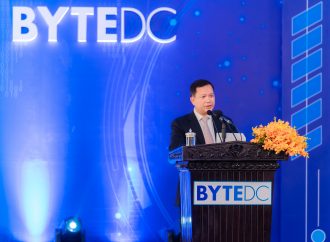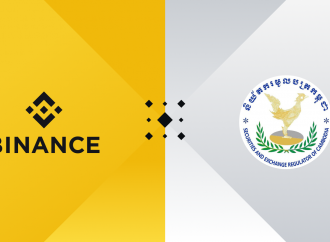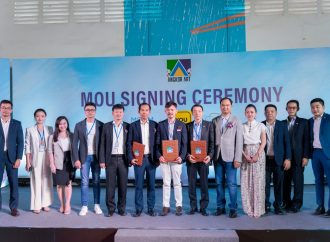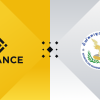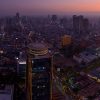Recent years have meant significant social development for Cambodians and particularly for those who live here in the capital. A decade ago, Phnom Penh was still very much a low-rise city.
Today, modern Cambodian’s commute to work through throngs of traffic, using newly built overpasses and increasingly doing so in cars or using one of the plethora of ride-hailing apps, often sipping coffee or listening to music streamed over 4G onto their smart-phone.
Phnom Penh has a diversified economy and is a primary driver of economic growth in Cambodia, particularly through its booming service industries, most of which are clustered in the 5 central districts that make up the traditional heart of the city.
As the lives of its citizens have changed, Phnom Penh has also evolved, rapidly becoming a metropolis of sprawling suburbs, dense high-rise centres of commercial and residential development and a centre for economic opportunity, not just for Cambodians but for a host of foreign workers who help to fuel the country’s rapid growth.
CBRE count more than 400 major construction projects ongoing across Phnom Penh, adding to the increasing sprawl and density of this thriving conurbation. The real estate and construction industries have been major contributors towards Cambodia’s sustained growth, which has averaged more than 7% of much of the last decade, only coming to a halt in 2020 on the back of Covid-19 and trade related threats.
Demand for skilled employees has grown at a rapid pace, none more so than for the well-educated graduates emerging from Phnom Penh’s international schools and universities. Cambodia’s population is young, with approximately 65% of the population aged under 30 and this youthful upswell in demographics is both driving economic growth and supplying large numbers of young employees to fill jobs. Often well versed in multiple languages, with solid inter-personal skills and technical insights, top Cambodian graduates have their pick of employers and as businesses compete ever more fiercely for top talent, the quality and features of their real estate assets are increasingly coming to the fore as a resource for attracting and retaining the best employees.
At present, one of the top concerns for employees relates to the location of their future workplace, particularly ease of access and parking. With few public transport options available, reliable road networks are needed to ensure a smooth commute and at the end of which employees wish to park their car or motorbike in a secure location, close to their place of work and which is reasonably priced.
Location factors also come to the front of employee’s decision making when considering access to services, particularly high-quality F&B provision. A premium and mid-range coffee shop, grocery store and an array of lunch options are high up the priority list. As work and social lives continue to blend for young Cambodian’s, and as work starts to take a higher priority over more traditional life paths, the need to be close to sources of entertainment are taking higher levels of precedence.
Real estate decisions are typically medium to long-term, often involving significant investment in fit-out and typically tying a business in to a space for 3 – 5 years. In a rapidly changing city like Phnom Penh, 3 to 5 years is a long time; traffic conditions can change as developments take shape nearby, infrastructure can develop, and new areas of the city will open up to high-rise and commercial development. Selecting a location requires a careful and methodical approach to understanding the surroundings, future development patterns and landownership. Armed with this information, businesses can make an informed choice that reflects what will happen into the future.
Beyond locality factors, workplaces, and the buildings they occupy can act as a signpost to an employer’s branding and ethos. Top graduates are increasingly seeking an alternative to the traditional career paths forged by their parents, and they are keen to explore workplaces with a modern, fresh, and ambitious outlook. International businesses have been leading this trend, bring in workplace strategies and fit-out guidelines from more mature markets, but we are also seeing a strengthening in home-grown businesses also following modern workplace concepts as they too compete for talent. For young graduates, modern workplace settings that include elements of agile working such as hot-desking or activity-based working are appealing, as they would typically indicate a that the organisation is forward-looking, whilst also providing an attractive and comfortable working environment that is customisable to the individual’s preferences.
Selecting the right building for the projection of a company’s image is an important supporting factor. Office buildings in Phnom Penh range from basic, economical Grade C buildings, up to international standard Grade A spaces which would not be out of place in Hong Kong or Singapore, and a whole host of options in between. Into the future, the options available to commercial occupiers are set to grow significantly; CBRE Cambodia forecast that the market will more than double in size over the next 4 years, from 530,000 square meters of supply today up to 1.3 million square meters by the end of 2024.
To compete for occupiers, Landlords of commercial buildings will increasingly seek to differentiate their offering to tenants; in part this will be achieved by the adoption of increased engagement with occupiers and their employees, as well as by adding in new facilities and services. Building in facilities and strategies which promote health and well-being, including access to gyms, bicycle parking and showers, as well as places for building occupants to relax and destress will help engagement. Furthermore, we expect an expansion in the adoption of flexible workspace options such as serviced office spaces and co-working space, the inclusion of a wider variety of on-site retail amenities, plus the use of technology to drive engagement and efficiency for both the building and it’s tenants. Working in partnership with Landlords and the building’s management team; Phnom Penh’s businesses will be able to tap into the power of a Building’s community and leverage new features and services to deepen employee engagement and aid talent attraction.


